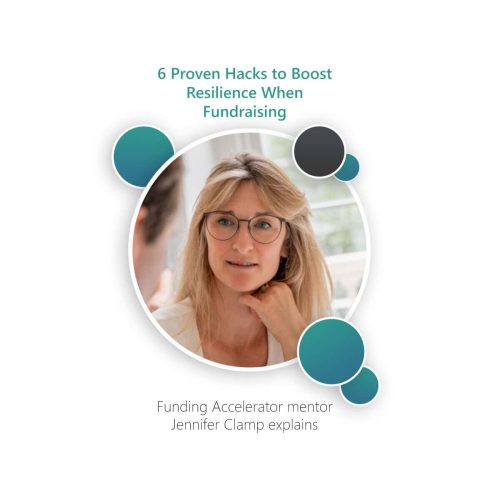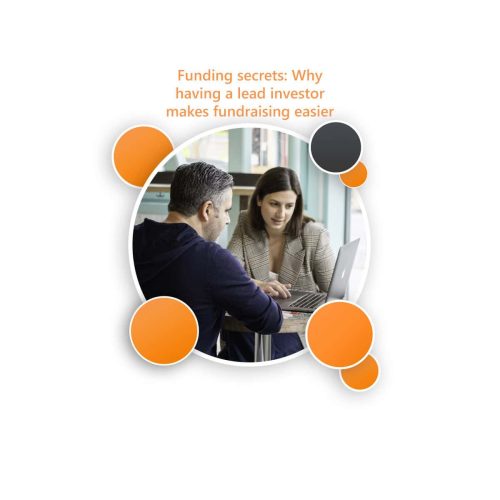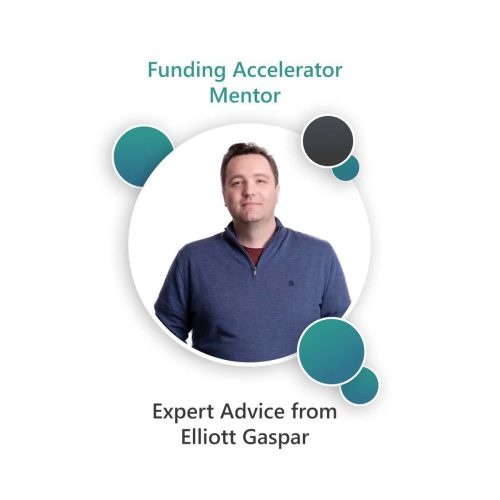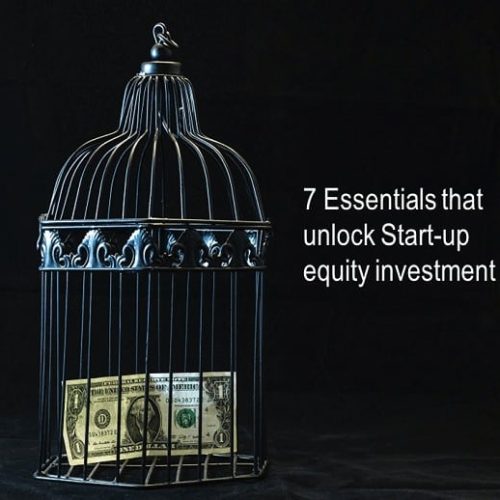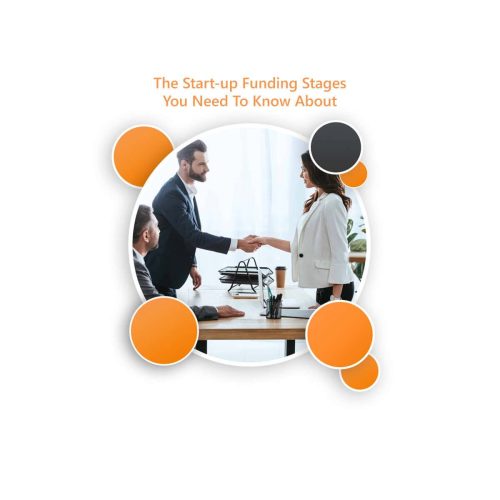Gideon Barker, founder of Customer IQ and a trusted mentor at our Funding Accelerator, recently led a workshop about integrating market research into pitch decks to build investor credibility. In the workshop, he shared three practical tips on conducting market research on a budget and tackling common start-up research challenges such as:
- How to ‘size’ your Total Addressable Market
- How to use market research to quickly communicate to investors what sets your start-up apart from your competitors.
- How to use market trends to prove that now is the right time for your start-up to grow, making it desirable to investors.

Here’s Gideon’s advice in more detail:
Evidencing Total Market Size In Your Pitch Deck:
Demonstrating the Total Addressable Market (TAM) is vital for both investors and founders. This is not only important to get investors excited, but also for founders to assess the feasibility of their business.
When showcasing the total market size, you also need to demonstrate that you are operating in a growing market, ideally.
Realistically, the degree of confidence investors have in your market size comes down to the quality of the data that you use and your ability to apply logic to it.
Here’s how to do it effectively:
- Utilise Quality Data: Gideon recommends using up-to-date market sizing data from reputable sources. While gathering your own data is an option, it can be time-consuming and costly. Instead, leverage free sources such as government statistics, NGOs, and reports from respected agencies like Statista, Gartner, and Forrester.
- Combine Multiple Sources: Integrating insights from various reputable sources can provide a more comprehensive view. Transparency about your methodology is essential to build investor confidence.
- Strategic Budgeting: Market research can be conducted on a startup-friendly budget. Gideon recommends exploring a variety of free sources such as government statistics, data from non-governmental organisations (NGOs), Statista, Google Public Data, analysis that competitors have done before, and publications from large market research agencies like Ipsos, Gartner, Forrester, and Pew Research Center as good starting points for working out market size.
- Strategic Approaches for Limited Data: In developing markets with scarce data, omnibus surveys offer valuable insights. These surveys allow you to purchase questions on established surveys for a fraction of the cost of independent research, typically around £250-£300 per question
- Negotiating Pricing with Data Providers: Mintel reports provide valuable insights but can be expensive. Gideon therefore advises negotiating with providers for access to specific data points at discounted rates. This approach enables accessing crucial insights without the expense of a full report, which can cost thousands.
Positioning Against Competitors In Your Pitch Deck:
Market research isn’t just about understanding market size; it’s also about understanding the competitive landscape and positioning your start-up effectively. Here’s how Gideon suggests using market research to differentiate your business.
Identifying Market Players:
Thorough market research enables founders to pinpoint key players in their industry, which is crucial for investor scrutiny and for better understanding of the competitive landscape. This understanding aids in gauging market saturation and identifying disruption opportunities. In developing markets, research should extend beyond direct competitors to encompass broader industry dynamics, including unconventional competitors. This can be done by understanding how your current target market assesses their needs.
Identifying Market Opportunities:
Conducting a ‘mapping’ exercise reveals gaps and opportunities for differentiation. Gideon recommends mapping one or two key criteria such as price, speed of service or feature sets which will help uncover unmet needs and potential market advantages. By cleverly positioning your start-up to focus on unmet needs, you can make the most of the market opportunities and get ahead of the competition.
Distinguishing Unique Value Proposition:
Tools like Sparktoro can be invaluable and aid in dissecting target audiences and refining go-to-market strategies. This Analysis clarifies a start-up’s value proposition, identifies differentiation opportunities, and highlights what sets it apart from competitors.
Analysing Competitor Messaging:
Utilising data visualisation tools to analyse competitor messaging offers valuable insights into their positioning tactics. Simple word clouds generated from competitor URLs provide quick snapshots of language use, marketing messages, and promotional strategies. These insights can inform your startup’s messaging and positioning strategy.
Informing Pricing Strategies:
Gaining Insight from market research can inform pricing strategies by revealing market norms and consumer expectations. Understanding competitors’ pricing strategies and the consumers perceived value of the product or service, it can help your start-up set competitive and attractive pricing.
Why Now Is The Time To Grow:
Research-based evidence is essential for persuading angel investors or equity investors why now is the ideal time to invest. Here’s how to support your case:
- Showcase Demand: Tangible evidence of market demand, such as a waitlist of eager customers, demonstrates investor appeal.
- Highlight Trend Shifts: Presenting significant shifts in consumer behaviour reinforces the urgency to invest.
- Regulatory Changes: Evidencing regulatory shifts positions your business as a potential disruptor, signalling the opportune moment for investment.
By leveraging market research, startups can make informed decisions, outmanoeuvre competitors, and capitalise on emerging trends and regulations. Strategic utilisation of data empowers startups to seize growth opportunities and navigate market dynamics with confidence.
So, integrating market research into pitch decks is a powerful strategy for building investor confidence. By evidencing total market size, positioning against competitors, and highlighting why now is the time to grow, startups can stand out in a competitive landscape and attract the investment they need to thrive.
Furthermore, it’s essential to emphasise the fast-paced nature of market research. Markets evolve, trends change, and competitors adapt. Startups must continually revisit their research to stay ahead of the curve and maintain their competitive edge.
Remember, the goal of market research isn’t just to gather data—it’s to gain actionable insights that drive strategic decision-making. Whether you’re a seasoned entrepreneur or a first-time founder, integrating these insights into your pitch deck can significantly enhance your chances of success.
Enjoyed this blog? You might also like: Pitch deck: How to include your go-to-market strategy
Are you ready to start your funding journey? Find out how attractive your business is to investors by answering 20 quick questions




